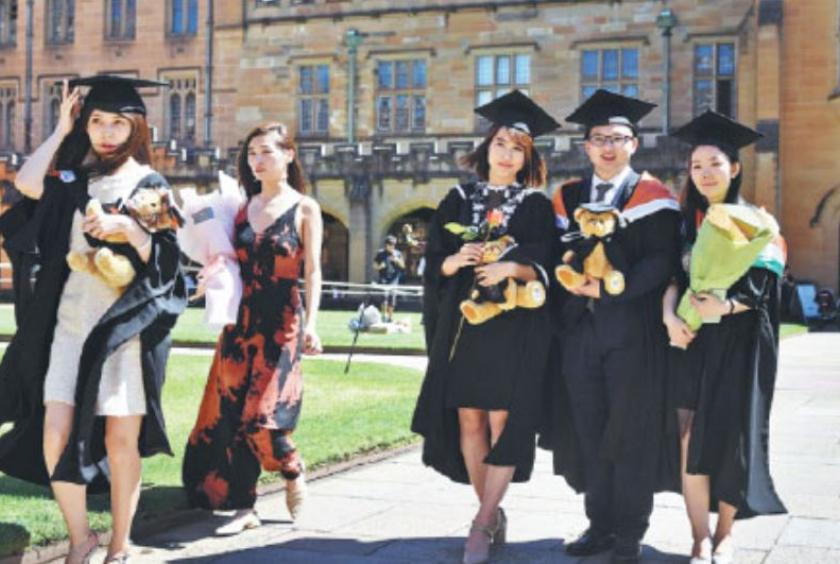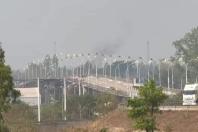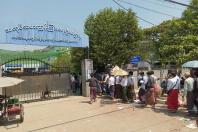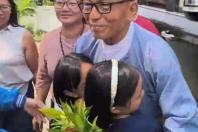
(China Daily/ANN) - In addition to the economic value, international students are a critical source of academic and research talent for colleges and universities in the United States.
Of the 54,664 doctorate recipients in 2017, more than 16,000 were non-US citizens, representing nearly 30 percent of the total.
This is according to the 2017 Doctorate Recipients from US Universities report published by the National Science Foundation in December. In physics, 25 percent of doctorates went to Chinese students alone, according to the foundation.
Steven Chu, a Nobel Prize winner for physics and former US secretary of energy, said at a recent forum on US-China relations at Stanford University, "The concern is that it's harder and harder to get visas, even for those very brilliant postdoctorate students who are applying to the best universities in the US.
He said the validity of visas for such students has been reduced to one year, from three or four years. "I would never hire a postdoc for one year," said Chu, professor of physics and professor of molecular and cellular physiology at Stanford University.
Last year, the administration of US President Donald Trump was reportedly considering a proposal to bar all Chinese students due to "espionage" concerns. Although the proposal was later shelved, the government has moved to place some restrictions on such students.
These include reducing the validity of visas for students and scholars from China studying and conducting research in certain "sensitive" fields.
Gordon Chang, a Stanford professor of American history and director of the Center for East Asian Studies at the university, said: "At Stanford, we don't do classified research. Overall, I don't see any irregularity or illegality going on."
He said the scrutiny of Chinese students worried him when he thought about academic freedom, openness and integrity.
"I've talked about this with some physics colleagues and they are worried because they value international exchange and discussion," Chang said.
In the fields most in demand among US employers, such as computer science and engineering, international students represent a majority of such graduate programs at US universities, according to the foundation's report, Science and Engineering Indicators 2018.
From 1995 to 2015, US universities awarded nearly 221,000 science and engineering doctorates to temporary visa holders. Among them, about 64,000 were from China, which accounted for more than 25 percent of international recipients, the report said.
Angel Cabrera, president of George Mason University in Virginia, wrote in an article for The Washington Post in November, "While other countries work hard to attract international students, we are managing to send a message that talented foreigners are not welcome here, just when we most need them.
"Some of the most successful startup companies in the United States had at least one immigrant founder, including Uber and SpaceX," he said.
Rahul Choudaha, executive vice-president at StudyPortals, a US company that recruits international students online, said graduate students come to the US with higher expectations of career outcomes and, as a result, are more sensitive to changes in job opportunities and immigration policies.
His view is echoed by Chu, who has several postdoctorate students from China.
"Virtually all the Chinese postdocs and graduate students I deal with, if they had an opportunity to work in the United States, would want to stay here," Chu said.
"The policies are being complicated by the federal government," he said. "The restrictions will ultimately drastically lower the number of students in post-doctorate and STEM (science, technology, engineering and mathematics)."
"That is of concern because there are opportunity costs," he added.
The US government recently announced an update to the H-1B visa system, which is used by employers, especially technology companies, to hire skilled workers from overseas.
Previously, 20,000 visas were granted to those with advanced degrees, and 65,000 to all qualified applicants every year. The new system, starting next month, will result in 5,340 more immigrants with advanced degrees receiving the visa, while the cap of 85,000 remains unchanged.
The change may encourage international students to pursue advanced degrees, but would have limited benefits from the students' perspective, immigration lawyers said.
Shiyang Gong, an immigration lawyer and CEO of AI Law Inc, a technology company in Silicon Valley, said that under the government's "Buy American, Hire American" policy, the H-1B visa system has witnessed a lower approval rate in the past two years.
The tightened restrictions and the political climate have resulted in many applicants seeking job opportunities elsewhere, she said.
David Lampton, a China expert, said at a recent Stanford University forum that the US should address the strategic problem of how to get the best brains and keep them in the country.
"That is the core of our policy, not how we can keep out brains. This country is built for innovation, and we honor it," said Lampton, Oksenberg-Rohlen fellow and research scholar at Stanford's Shorenstein Asia-Pacific Research Center.
"We have to think what we can do positively to get us moving in the right direction," he said.
http://www.chinadaily.com.cn/a/201903/06/WS5c7f1defa3106c65c34ecfed.html









